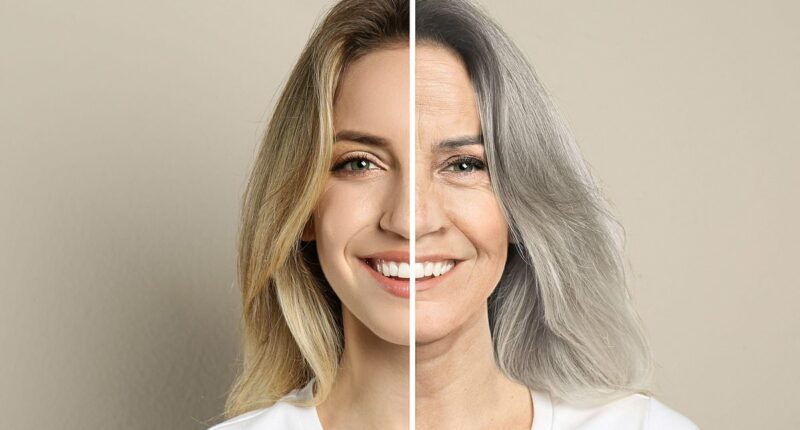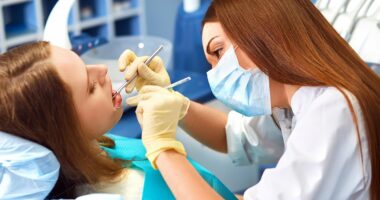Share this @internewscast.com
A recent study has suggested that we begin seriously aging as young as 30—with scientists pinpointing that this is the age that our bodies begin to break down.
Chinese researchers analysed 516 tissue samples from 76 organ donors between the ages of 14 and 68 over five decades.
They found that while we first start to notice changes at around 30, it isn’t between 45 and 55 that the changes really begin to ramp up.
The study authors said they observed a sharp increase in the aging process at the age of 50.
Previously, scientists discovered that proteins linked to disease in the body increase in number as we age.
These troublesome proteins were linked to life-threatening conditions such as heart disease, tissue fibrosis and liver-related tumours.
The latest findings suggest these proteins strikingly increased as the age of deceased organ donors went up.
The adrenal gland—which is located in the top of the kidneys and releases hormones vital for regulating bodily functions—began showing changes in protein levels as early as 30.

The Chinese researchers revealed we start aging much earlier than many may have realised
However, aging isn’t truly felt until between the ages of 45 and 55, because this is when the proteins increase rapidly across several organ systems.
The organ that took the most dramatic hit was the aorta, the heart’s largest artery which is responsible for pumping oxygen-rich blood throughout the body.
They found blood vessels were particularly vulnerable to early signs of aging.
This, they believe, is due to the organs seeing a rise in the levels of a protein called GAS6 responsible for cell growth, survival and migration.
The researchers believe the presence of this protein may play a vital role in triggering aging in our bodies.
But they also suggested their findings could provide insight to help improve the health of older adults.
‘These insights may facilitate the development of targeted interventions for aging and age-related diseases, paving the way to improve the health of older adults,’ said the study authors.
It follows a study recently published in the medical journal Nature, that looked at the link between ‘youthful’ organs and longevity.
By measuring certain protein strands in the blood, researchers were able to determine that organs can age at different rates, even when inside the same person.
An older biological age of organs was linked to heart failure, progressive lung disease COPD (Chronic Obstructive Pulmonary Disease), type 2 diabetes, and Alzheimer’s disease.
Similarly, having a ‘youthful’ brain ‘provided protection’ from cognitive decline and lifestyle changes can help.
They study suggested that a routine of vigorous exercise, a diet rich in poultry and oily fish, and keeping your intellect sharp with further education can help.
Meanwhile, smoking, alcohol, eating processed meat, a lack of sleep, and living in a deprived area accelerated organ aging.
Just earlier this month, a fitness guru shared five simple at-home tests that can reveal how well your aging.
The quick tests check for ‘balance, strength and flexibility’, which PT Caroline Idiens, 52, from Berkshire, England hailed as vital to aging well.
They include standing on one leg, doing a plank, standing from seated in a chair, squatting and pressing with water bottles for weights, and twisting a towel.
If getting out of a chair makes you go ‘oof’, she warned in an article by The Telegraph, ‘it’s time to start future-proofing your body’.















